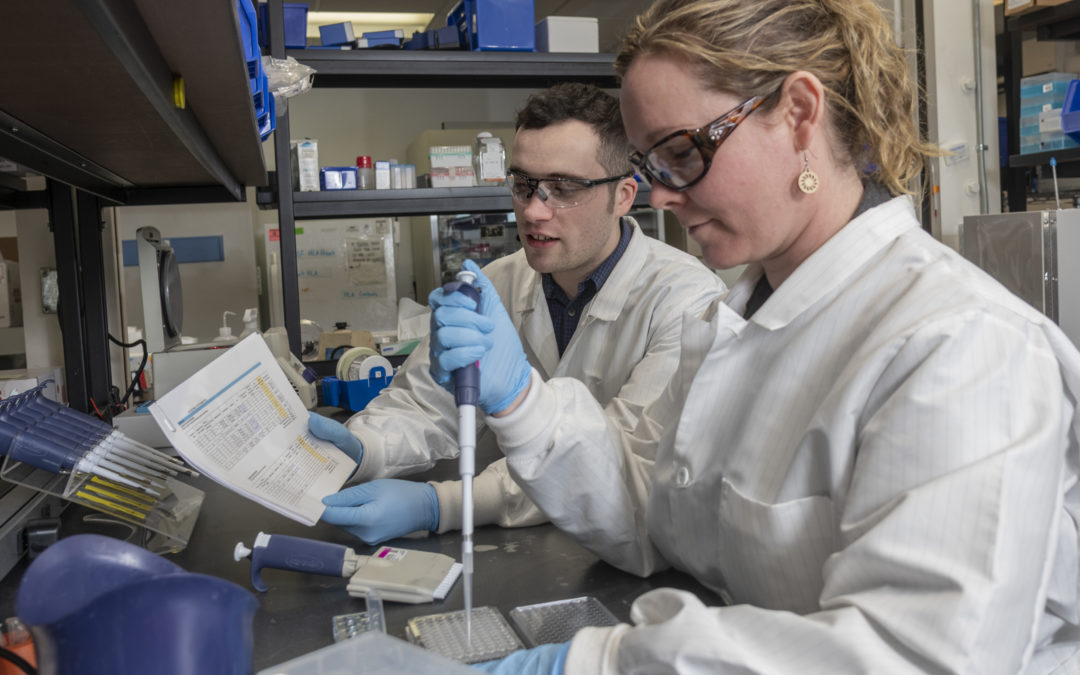Providence biotech company working to create coronavirus vaccine
by TAMARA SACHARCZYK, NBC 10 NEWS Wednesday, March 18th 2020
Find the full story here
EpiVax in Providence. (WJAR)
A team of local scientists are on the front lines of a global pandemic as they race against the clock to develop a life saving vaccine.
Providence based EpiVax is one of the many biotech companies across the world working to create a vaccine to fight the coronavirus.
EpiVax CEO Dr. Anne De Groot told NBC 10 News it’s a battle they’ve been preparing for for years.
“We’ve been preparing for 22 years for this moment. Our company was founded on the principle that you could take genome information from pathogens and turn it immediately into a vaccine using computer tools,” said De Groot.
Chinese researchers published a sequence of the virus last month, which is when EpiVax got to work. Using computer programs to analyze the virus, they identified a number of peptides, or protein fragments, that can mimic it.
“If you can imagine searching text in Microsoft Word, our computer program searched for the words that say ‘coronavirus’ to your immune system,” said De Groot.
Here’s how it’s supposed to work: When peptides are injected into a vaccine, your body’s immune system learns to recognize them then destroy anything that carries them, preventing the virus from making you sick. De Groot said once EpiVax identified the peptides, they began searching for partners to help transform their computer model into a real life vaccine.
“We contacted I think 15 or 20 companies saying we are ready to provide you with a recipe for a vaccine, and we’re now working with nine different companies and have nine different platforms that are ready to take this recipe that we’ve developed to the clinic,” said De Groot.
There are many ways to develop vaccines, but De Groot said peptide-based vaccines are generally quicker to develop.
“We’re hoping to get a peptide based vaccine to Phase 1 within five to six months,” said De Groot.
Phase 1 includes clinical trials.
Peptide vaccines are still a fairly new approach when it comes to the world of science, but De Groot believes, it’s an approach that could save lives.
“It has taken a long time for the world of bio-technology to accept the fact that computers are accurate predictors of immune response,” she explained. “I think we’re at that point right now and we have a chance to make a huge difference not just for Rhode Island, but also for the rest of the world.”
EpiVax still has one more major hurdle to cross: money. They’re currently applying for federal funds and hoping that the government will listen to their innovative approach.

